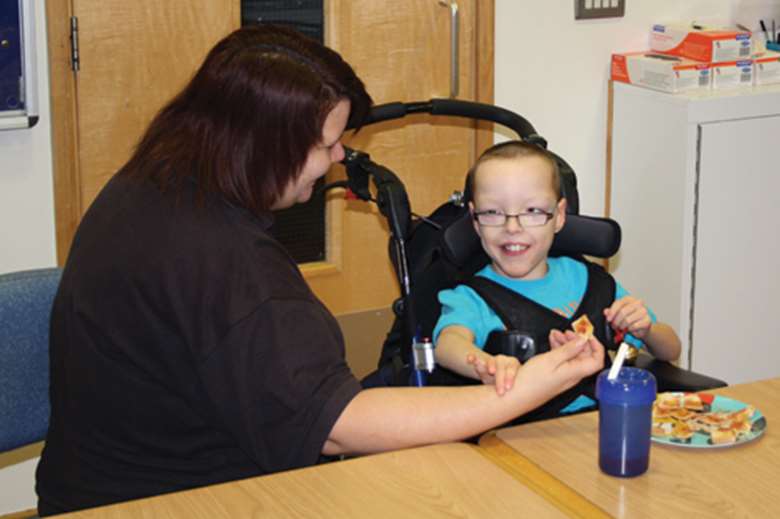How a residential centre in Peterborough is helping children with learning disabilities to thrive
Monday, January 23, 2012
Cherry Lodge provides quality care and support for children with severe learning disabilities, while potentially saving millions in the long term

Project Cherry Lodge
Funding Funded by Peterborough City Council with an annual budget of £900,000
Purpose To provide quality care and support for children with severe learning disabilities and their families
Background Eight years ago, Peterborough Council decided to change its services for some of the city's most vulnerable children, increasing the short break - or respite - care for children with severe learning disabilities.
Cherry Lodge, which had been a 21-bed residential school, moved to share a site with a special school. It became an eight-bed facility with four full-time places and four short-break beds. "Before, we were seeing children entering residential care because families had reached a stage when they couldn't cope," says manager Claire Young. "With the new service, we were able to be more creative and support families before they got to breaking point."
Action Cherry Lodge caters for five- to 19-year-olds with severe learning disabilities, who may also have physical disabilities, communication difficulties, sensory impairment and life-limiting conditions. Four children receive residential care and 22 take up short-break provision.
Often young people with severe disabilities will have to move into permanent residential care, but the service, which includes outreach support, helps keep families together for longer.
The 46-strong staff team works closely with families and professionals, including education colleagues, to ensure children get consistent support to achieve their potential and experience smooth transitions into adult care.
Before children start at Cherry Lodge the transition co-ordinator conducts a detailed assessment. Each child receives a key worker and a group of people who work with them. Care staff are trained to undertake healthcare tasks that might normally be done by nurses. This, together with close collaboration with health professionals, has helped reduce hospital admissions. Young says she also has access to a "very large" bank of relief staff.
The centre offers a stimulating programme of activities, including theatre trips and ice-skating.
Outcome In an unannounced inspection in October, the setting was judged "outstanding" across the board with no recommendations for improvement. Inspectors said young residents were making "exceptional progress in their health, education, behaviour and life skills".
A cost-benefit analysis found the facility had the potential to save millions in the long term. A tailored package of short-break, outreach and day-care support for one child cost £70,000 a year compared to a residential placement of £180,000 to £200,000. Of the 22 children using short-break care, Young estimates 20 per cent would have previously gone into full-time residential care. Before the changes, the average referral age for residential care was 10. Now all residents are over 15.




